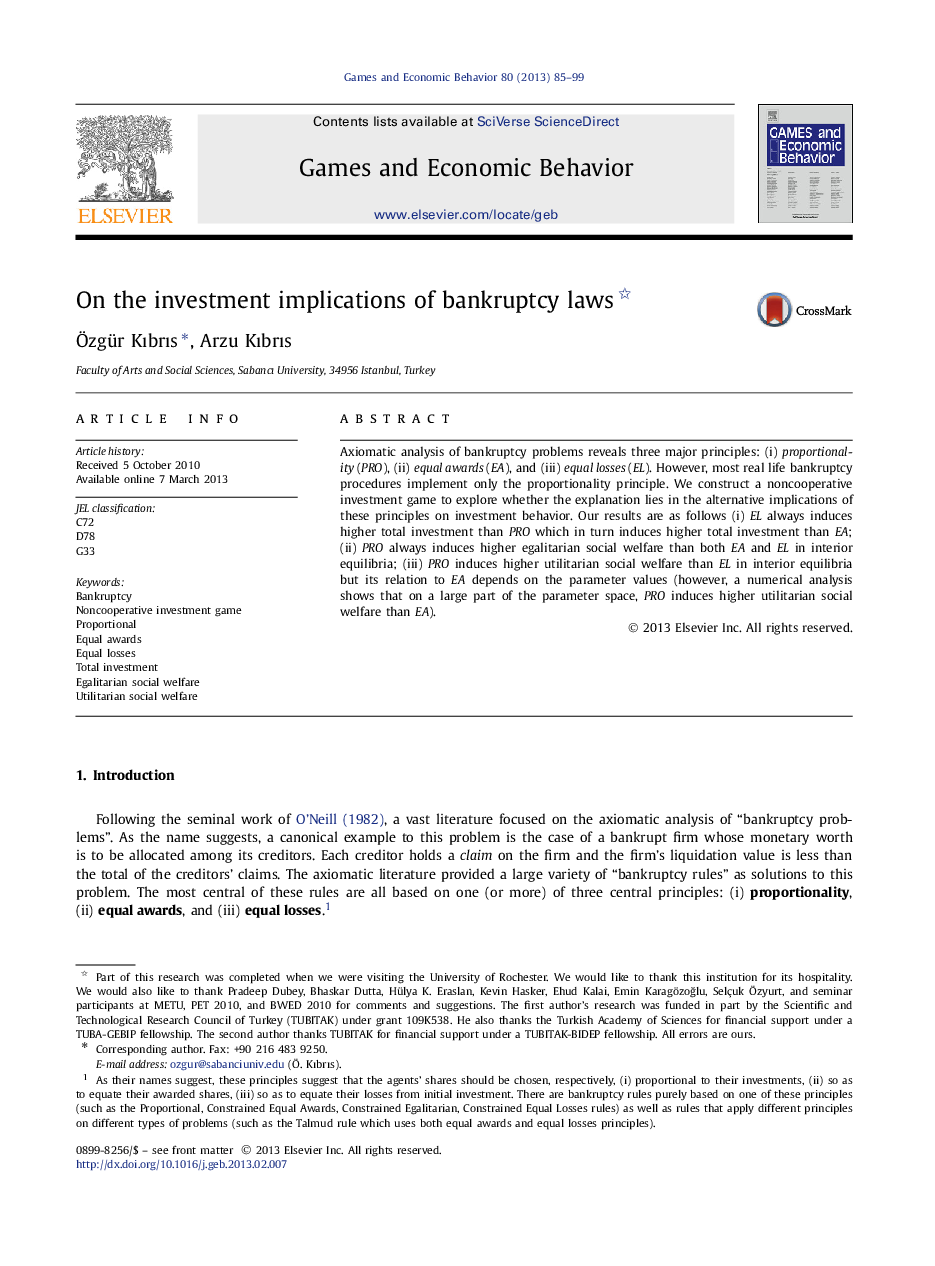| Article ID | Journal | Published Year | Pages | File Type |
|---|---|---|---|---|
| 5071804 | Games and Economic Behavior | 2013 | 15 Pages |
Abstract
Axiomatic analysis of bankruptcy problems reveals three major principles: (i) proportionality (PRO), (ii) equal awards (EA), and (iii) equal losses (EL). However, most real life bankruptcy procedures implement only the proportionality principle. We construct a noncooperative investment game to explore whether the explanation lies in the alternative implications of these principles on investment behavior. Our results are as follows (i) EL always induces higher total investment than PRO which in turn induces higher total investment than EA; (ii) PRO always induces higher egalitarian social welfare than both EA and EL in interior equilibria; (iii) PRO induces higher utilitarian social welfare than EL in interior equilibria but its relation to EA depends on the parameter values (however, a numerical analysis shows that on a large part of the parameter space, PRO induces higher utilitarian social welfare than EA).
Keywords
Related Topics
Social Sciences and Humanities
Economics, Econometrics and Finance
Economics and Econometrics
Authors
Ãzgür Kıbrıs, Arzu Kıbrıs,
